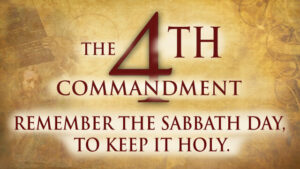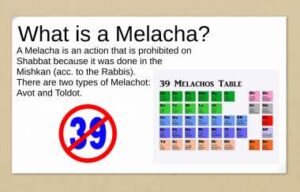Raboyseyee and Ladies,
A few very happy shoutouts this week, but we begin with the very sad news of the sudden and untimely passing -last week- of Chaim Elefant, the late husband of Miriam Elefant, of Los Angeles, CA. The world was shaken to hear of the great tragedy and the Ois begins by providing a link to where people can contribute to the fund established by Los Angeles rabbis and others who need to help the family that is now bereft of a father and husband. Miriam is a very dear friend of our daughter Alex and we have had the pleasure of having her at our home several times. Chaim’s very emotional levaya can be seen and heard here. https://www.youtube.com/watch?v=JVNXeBEvCQo.
Those moved to contribute, please check out the link below-
https://thechesedfund.com/AN5RdD/elephantfamilyfund?aff=5tg

BORUCH DAYAN HAEMES
Chaim Elefant Z’L
Just the thought of writing such words about such a special person is unfathomable and beyond anyone’s wildest imagination. With his sudden Petirah the world is shocked. What’s even worse is the thought of Chaim’s incredible wife Miriam (Citronenbaum) and FOUR BEAUTIFUL CHILDREN ALL UNDER THE AGE OF 7 having their life turned upside down with no father to turn to.
Hashem Yerachem

At this most difficult moment we turn to all our friends and family and help this family who has always been on the giving end to ensure they don’t collapse. We as a community need to do our best and to not allow this family to suffer anymore than they already are.
Chaim Z’L is the 33-year-old son of Lisa and Yaakov Elefant of Brooklyn NY.
The fund is being overseen by BCLA/Misaskim LA with oversight by accountants and Rabbonim and will go towards the family daily living expenses such as Mortgage, therapies and any expenses.
BCLA/Misaskim is a 501C3 and checks, Fidelity or DAF donations can be sent here:
BCLA
4221 Wilshire Blvd
Suite 290-7B
LA, CA 90010
Bais Chesed LA FEIN: 45-3823343
Rabbi Shlomo Einhorn – Rabbi Daniel Grama- Rabbi Boruch Gradon
————————————————————————
This past Sunday we attended the beautiful wedding of Alex Winter who married Ben Taragin. And this past Tuesday evening we attended sheva brochis for the happy couple. One more mazel tov shout out to Alex & Ben and to both extended families.
Earlier this morning, we had the pleasure of attending the bris of Yoseph Yisroel, he the new arrival to first time parents, Eliana, and Mendy Duftler. Welcome to the world Yoseph Yisroel Duftler. A big mazel tov to our friends and cousins Sharon and Brian Duftler – first time grandparents. May Yoseph Yisroel be a great source of much joy to his parents, his grandparents on both sides, and to his amazing aunts Rachel and Aliza and to uncle Boaz.
This coming Sunday, we look forward to joining our friends Ronit and Dov Lederer as they celebrate the engagement of their son Josh to Sarah Berger. A big mazel tov to Ronit and Dov -very nice, good and sincere people, and a good pick-up in the friend department. May Sarah and Josh be blessed with great mazel together and may they merit happiness for many decades ahead.
————————————————————————
Long before Uncle Moishy re-popularized Big Gedaliah Goomber -a shabbis song featured on his early tapes- the original song, was seemingly written and recorded in the 1960s, and the Ois has very clear memories of singing “Aint gonna work on Saturday” back in Camp Mogen Avrohom, and in later years to his kids. Big Gedaliah remains popular – people love singing about the heylige shabbis. Uncle Moishy brought him back in volume 18 with BGG’s latest shabbis observing escapades. In 1970, yet another group, Abraham Weisman & The Clei Zimrah Orchestra recorded yet another version. Big Gedaliah Goomber is the man!

So happens that in the Mishpacha magazine, issue 455, 7 Iyar 5773, (April 17, 2013), Mrs. Blima Silverman of Toronto, Ontario, wrote (in a letter to the editor), azoy: “In your February 20 edition the song, ‘Big Gedalia Goomber’ was attributed to yet another person who did not write it.” , “The song (both music and lyrics) was composed by my husband, Rabbi Yosaif Silverman z”l, in the early ’60s, as anyone attending Telshe Yeshiva at that time can attest. The record was produced in 1969, along with other tunes he had written, and is still under copyright.” The original lyrics by By Yosaif Silverman- Vol. 1 are found below. You’ll need to do an exhaustive on-line search to find the original recording but a few of Uncle Moishy’s recordings of the song are found here. https://www.youtube.com/results?search_query=big+gedaliah+goomber
I’m big Gedalia Goomber
I’m not exactly small
But really not so very big
Just seventeen feet tall…
I’m rigged for heavy working
For that I’m very fit
Six days a week I’m at it
And on the seventh day I quit.
Ohhhh….
CHORUS:
Ain’t gonna work on Saturday
Ain’t gonna work on Saturday
Double, double, triple pay
Won’t make me work on Saturday
Ain’t gonna work on Saturday…
It’s Shabbos Kodesh.
I once helped raise a building
And on the hundredth floor
I was carrying a load of bricks
An easy ton or more…
And here, it’s late on Friday
I knew I’d have to stop
So I yelled, “Watch out below!”
And let the whole thing drop.
Ohhhhh….
CHORUS:
Ain’t gonna work on Saturday
Ain’t gonna work on Saturday
Double, double, triple pay
Won’t make me work on Saturday
Ain’t gonna work on Saturday…
It’s Shabbos Kodesh.
I once was an explorer
To Africa I went
One day some hungry lions
Came roaring ’round our tent
My assistant held my rifle
“Go Goomber, shoot these pests.”
But I invited them instead
To be our Shabbos guests.
Ohhhh….
CHORUS:
Ain’t gonna work on Saturday
Ain’t gonna work on Saturday
Double, double, triple pay
Won’t make me work on Saturday
Ain’t gonna work on Saturday…
It’s shabbos kodesh.
I dress my best on Shabbos
Three meals I feast me fine
I make a royal Kiddush
On a barrel full of wine…
And when I sing my Zemiros
For a thousand miles they know
That we’re enjoying Shabbos
For Hashem has told us so.
Soooo…
CHORUS:
Ain’t gonna work on Saturday
Ain’t gonna work on Saturday
Double, double, triple pay
Won’t make me work on Saturday
Ain’t gonna work on Saturday…
It’s Shabbos Kodesh.
And we lead with big Gedalia Goomber why? Because once again in this week’s Parshas of Vayakhale and Pikudei, the RBSO will remind us to keep and to observe the heylige shabbis. The RBSO takes the heylige shabbis very seriously as we will learn once again this week. In a parsha otherwise dedicated to the building of the Mishkan and its accoutrements, we get yet another reminder about the heylige shabbis. The bottom line: the RBSO loves the shabbis and He makes sure we know it.
Let us begin by quoting from the opening pisukim of our parsha. From prior postings on these parsha -twelve of them and check them out at www.Oisvorfer.com or, efsher from your many years in yeshiva, you recall that Parshas Vayakhale and Pikudei, twins this year, are mamish a repeat of Teruma and Tetzaveh. Ober, does the heylige Toirah repeat itself? Not! So we were taught over and again. That being said, Vayaklale is mamish a repeat. So much so, that even Rashi has little to say. What’s pshat? Azoy: In Teruma, the RBSO gave Moishe very specific instructions about the building of the Mishkan. Why repeat them here and why listen to the laining this week? Ver veyst! The bottom line: if the heylige Toirah does repeat itself and if the RBSO does want us -over and again- to hear about the Mishkan and shabbis observance, there is a good reason. Exactly what that reason is, ver veyst? Seemingly, it’s none of your business! Your job: listen to the RBSO!
One more thing: many proffer explanations on why these parsha and reminders are repeated. At your level, all you need to know is that in Teruma, the Yiddin were instructed to build and in this week’s parsha, seemingly after a successful building campaign and after the plans were approved by the various Midbar zoning committees, the project is underway. The Mishkan and all its accoutrements will be built.
Shoin, let’s learn innaveynig: “And Moishe assembled all the congregation of the children of Israel, and said to them: These are the words which the Lord has commanded, that you should do them. Six days shall work be done, but on the seventh day there shall be to you a holy day, a Shabbis of solemn rest to the Lord; he who does any work therein shall be put to death. You shall kindle no fire throughout your habitations upon the Shabbis day.”
Epes, these instructions -as just mentioned- ring familiar and mistama you’re wondering why the mitzvah of shabbis is repeated here. Why taka does shabbis observance gets so much Toirah play? Didn’t we already encounter this mitzvah when the RBSO came down and gave the Yiddin the Aseres Hadibrois (Ten Commandants)? Wasn’t shabbis number four on that list? It was! Guess what? Shabbis observance has previously been mentioned in four other places in Sefer Shemois (16:23, 20:7-10, 23:12, and 31:13-17) and will be repeated later in Sefer Devorim. In fact, the heylige Ois did a quick search and found that references to the heylige shabbis can be found 30 times -well, blow me down- in the heylige Toirah.

Why was it necessary to relay this command to the Yiddin once more, and why specify kindling fires? Ober raboyseyee, to the real students of the heylige Toirah, extraneous and redundant words are the keys which the RBSO left us to unlock the doors to its treasures and the repetition of the shabbis instructions may be one of those keys. Ober, why taka all these reminders and what is the connection between the Mishkan project and shabbis? Says Rashi, and who knew more, azoy: Moishe reminded the Yiddin that it was forbidden to work on shabbis before commanding them to construct the Mishkan in order to teach them that even the necessities of the Mishkan – the RBSO’s house- do not override the heylige shabbis.
Says the Ramban: the mitzvah of shabbis is repeated here in order to emphasize the importance of the RBSO’s day of rest and that even building the Mishkan is not דוחה (does not push away) the shabbis. No great news here except this point. Following the eygel debacle, the Yiddin were on their best behavior. Wiping out three thousand a few parshas back, put a shtikel scare into them. In this act of the good Yiddin, they were quite eager to serve the RBSO properly, they wanted to build the Mishkan now! Maybe even on shabbis. Ober said the RBSO, chap-nisht (slow down) and reminded them that the heylige shabbis may not be violated.
Efsher we can kler (speculate) that the RBSO knew -of course He did- that His Yiddin would have trouble with this mitzvah, that shabbis observance as He envisioned it, would be challenging. Efsher, He looked ahead and saw that Yiddin would be taking hot showers on shabbis, opening their hotel rooms with their electronic keys, albeit with a she-nui, schmeering sunscreen all over their bodies before sitting out at the pool on shabbis and yom tov while staring at the halb-nakite (scantily dressed) hot shiksa meydlich. Mistama He also knew that certain Yiddin wouldn’t use the klei shaynee when making coffee on the heylige shabbis, or efsher worse -what could be worse- they would be tearing packets of artificial sweetener open, or toilet paper because the pre-cut paper was either too small or efsher a shtikel too rough on their delicate michilas (rear ends).

Maybe He knew that yeshiva bochurim would come down late on Friday night to have some hot chulent, remove the pot from the blech and not put it back when it was still sizzling hot, ver veyst. Oy, there are so many examples of chillul shabbis, nebech. What to do? He sprinkled gentle and not so gentle ‘keep-the-shabbis-reminders’ into a healthy number of parshas; eight to be exact. Of course, this is all speculation by the heylige Ois, but could that be pshat? Why not?
How important is shabbis observance? Very! Says the heylige Gemora (Shabbos 118b) azoy: if all the Yiddin would properly observe two shabbises, they would immediately be redeemed. What’s pshat redeemed? Seemingly, were this to happen and avada it’s only hypothetical, the Moshiach would make a sudden appearance and we would all live happily ever after.
Ober, says another heylige Gemora (Yerushalmi) azoy: when all the Yiddin will keep just one shabbis, the geula (redemption) in the form of Moshiach, will immediately come. Efsher you recall that way back in the 80’s, the Jewish pop star singer Mordechai ben David, not to be confused with Moshiach who is referred to as ben Dovid, wrote and sang the givaldige song by that name: ‘just one shabbis and we’ll all be free.’ Find it here: https://www.youtube.com/watch?v=v_ussII-Szs
Which is it? One shabbis or two to bring the Moshiach? Said The Alter Rebbe (one of the early Lubavitcher Rebbes) azoy: it’s but one shabbis. Settled! Ober that one shabbis contains two Shabbises, or two levels of shabbis, whatever that means. The first level of shabbis is ‘non-doing,’ the cessation from everyday work, and the second level is ‘doing,’ filling the day with prayer, Toirah study, and song. Yet, despite shabbis clocks, timers, shabbis lights, pre-cut toilet paper, hot plates, warming drawers and a healthy number of goyim to turn things on and off in a pinch. Seemingly the keeping of even one shabbis by all Yiddin, continues to elude us. In the meantime, alas, we are still here.

In case you’re taka wondering when Moshiach is coming or scheduled to make an appearance, nu that too depends on which theory talks to you. In case you run out of loshoin horo at the shabbis tish, -that too is avada only hypothetical- you can debate the following theories about his arrival. Some scholars believe that the RBSO has set aside a specific date for his arrival ober others suggest that his coming, will be determined mamish, only by the conduct of mankind. In other words: he’s never coming! Some believe that he will come in a time when he is most needed. When is that? Times like now when the markets are in turmoil, bank stocks are being pummeled, and the world is full of oisvorfs. Ober, others say farkert; he might show up in a time when he is most deserved because the world is so good. In other words: he’s never coming! Got all that? No? Let’s chaizir the suggested Moshiach arrival days.
- if the Yiddin (all) were to do tshuva (repent) for a single day
- if the Yiddin observed a single shabbis properly
- if the Yiddin observed two consecutive shabbosim properly
- in a generation that is totally innocent
- in a generation that is totally guilty
- in a generation that loses hope; in a generation where children are totally disrespectful towards their parents and elders
And if all those don’t work, and they haven’t until now, some suggest that he will come before the Jewish year 6,000. For those counting, we are in the year 5783. Still plenty of time to chap-areyn, if you chap.
Efsher you’re taka wondering how it’s possible that just by keeping one or even two shabossim, the Moshiach, who has eluded us for over 5700 years, would suddenly make an appearance and redeem us? Are you? Nu, guess what, you’re not alone. And even if emes, why is shabbis connected to his arrival? And what has this to do with our parsha? Let us find out; the answer may well lie in our parsha.
Said Reb Shimshon Pinkus (Shabbos Malkasa 3:7) azoy: there are many comparisons between the Beis HaMikdash and the heylige shabbis. First and foremost, the main purpose of the Mikdash was to bring atonement for our sins. And the first ever Mikdash was the Mishkan that was built in this week’s parsha and avada you recall that the Mishkan was built to atone for the giferlich sin of the Eygel (golden calf). Similarly, in the Friday night davening when the chazzan interrupts our talking (for a second) and proclaims “Vayichulu“, two angels place their hands on our heads and remove our sins. Angels place their hands on our head? So says the heylige Gemora (Shabbos 119b), check it out. In any event, angels’ hands on your head is zicher better than the rebbe’s hands on your other head, if you chap. Gishmak!
Ok we chap that the Mishkan was built to atone for the Eygel sin ober how is this connected to shabbis? What does the sin of the Eygel have to do with shabbis? Ober listen to this mamish gishmak pshat. Said the Or Hachaim azoy: It is significant to note that this mitzvah of shabbis comes on the heels of the ugly Eygel myseh. Says the heylige Toirah (Bamidbar 15:23), azoy: “When you sin and do not do all of the mitzvois…” Ober which sin could the Yiddin have committed to have transgressed all of the mitzvois? Idolatry! And how many times has the heylige Ois told you that idolatry is considered tantamount to a rejection of all 613 commandments, the gantze Toirah? Many! And how to fix this?
Seemingly, one wishing to atone for the grievous sin of idol worship must atone by performing all 613 commandments. Ober let’s get practical. For most of you giferliche bums, the observance of even a few is a burden. You even cheat and cut corners on the ones you do perform; how can it be expected that you would keep all 613? Ober you needn’t feel bad: even the greatest cannot accomplish this feat. Moreover, certain mitzvis are time and place specific and out of our reach. What to do? Say our wise ones: by keeping the heylige shabbis, one is considered to have kept all 613 mitzvois. It’s all encompassing. Therefore, says the Or Hachaim, Moishe, following the eygel myseh gathered the Yiddin for atonement. And the atonement was a reminder to keep the shabbis. Mamish gishmak.
Is there taka a connection between the Mishkan and the heylige shabbis? Indeed there is! In the Mikdash the Yiddin set up the oil and wicks and lit the menorah, they ate certain parts of the korbonois (sacrifices), the Kohanim were obligated to wear special priestly garb, and they washed their hands and feet before performing the service. As shabbis enters, we set up and light candles, we eat three meals, wear special shabbis clothing and by showering or bathing, wash at least our hands, feet and face for shabbis. Of course, some are more machmir (strict) about washing up or showering and do this on shabbis as well.
And listen to this: the shabbis reminder and its placement had many of our good sages debating its connection to the Mishkan and as you can only imagine, entire books have been written analyzing the prohibition of constructing the Mishkan (Tabernacle) on the heylige shabbis. Moreover, it appears that most of the shabbis restrictions we grew up with, all stem from this week’s parsha. Seemingly it took 39 different acts of ‘melocho’ (work) to construct the Mishkan and the good rabbis decided that since Moishe instructed them for a 5th time not to violate shabbis, it must therefore be the case that all 39 categories of melocho would forever be forbidden on shabbis. And taka so says the Mishna (Shabbis 73a) which lists the 39 categories of melocho that are prohibited for this reason. Moreover, says the heylige Gemora (Shabbis 49b) azoy: The number of prohibited melochois on Shabbis -39 to be exact- corresponds to the number of times the word “Melocho” (with its various suffixes) appears in the heylige Toirah and provides a convenient source for the ruling that exactly 39 categories of work are prohibited by the Toirah on Shabbis. Shoin and settled? Not! Why not?
Because a bit later in the same Gemora, Rebb Yosi wondered, “Is the verse ‘And Yoisef entered the house [of Potifar] to tend to his Melocho (Bereishis 39:11)’ included in the count… [or is the verse] ‘The Melocho was sufficient [for the purposes of the Mishkan] (Shemois 36:7)’ included in the count?” Avada you recognize the last verse; it’s from our parsha!
Yoisef and his melocho? What the hec has Yoisef, who is long dead, got to do with our parsha, with the Mishkan, and or with the heylige Shabbis? And, what sort of melocho was Yoisef doing that RebbeYosi was wondering about? Guess what? Seemingly, according to some very respected medroshim and also brought down in the heylige Gemora, the melocho Yoisef was preparing to do was Mrs. Potiphar. What’s pshat. Seemingly, after refusing her advances day by day, on this particular day, when he came ready to do his work…. that work seems to have included bedding the boss’ wife. OMG! Is that emes? Ver veyst but it’s certainly discussed.

In any event and therefore, one theory suggests that since what Yoisef had in mind was ‘melocho (work) and since melocho is forbidden on the heylige shabbis, that having relations with the eishes chayil, or even with others, might be considered a melocho and therefore forbidden on the heylige shabbis, say it’s not so please. Grada many women hold of this pshat and extend it to weekdays as well; oy a broch! Of course this would not reconcile with what the orthodox Yiddin have come to know as mitzvah night. What to do? Shoin, when it comes to matters of intimacy, at least back then in those days, the rabbis quickly found a solution. The solution was to state that this sighting of the word ‘melocho’ does not count. And therefore, though the actual sightings may be 40, we refer to the melochos as being 40-1 or 39. And yes, this is all serious. So, let’s chazir (review): Yes, there are actually 40 sightings and not just 39 verses which discuss ‘melocho’. One of them is apparently not included in the count, since it does not translate as “labor” but rather as “business.” Seemingly, this could also be the source for the term ‘he did his business,’ or the shop is either open or closed for business, if you chap. Says Rashi and who understood better than he, azoy: Only ‘melochois’ which refer to labor are to be included in the count. Since the word ‘melocho’ in the two above-quoted verses can be read either as “labor” or as “work,” the Gemora is not sure which of the two truthfully means labor and should be included in the count, and which means “business” and should not be included.

And taka says the heylige Mishna (Shabbos) azoy: “There are ‘forty minus one’ categories of labor.” Why doesn’t the Mishna just say “thirty-nine”? Answers the heylige Gemora azoy (Shabbos 49b): the word melocho, (labor), appears forty times in the Toirah. One of these appearances however, doesn’t really mean ‘labor’, rather it is a euphemism for intimacy. Thus we use the unconventional term, ‘forty minus one’. Seemingly having relations with the eishes chayil is not considered, or should not be considered melocho; some would of course beg to differ, if you chap.
How 39 sighting of the word melocho have been transformed into many thousands -and still growing- list of things one is forbidden to do on shabbis, is for another day. Also for another day is this: when one attempts to actually count the appearances of the word ‘Melocho’ in the heylige Toirah, it turns out that the count does not exactly reconcile with the Mishnah or the Gemora. And says the Toisfis YOM TOV (Shabbis 7:2) azoy: when his son pulled out the Concordance, he found that the number of times the word ‘melocho,’ with its various suffixes, appears in the Toirah is in the sixties! Why would or did Chazal (our wise sages) ignore so many appearances of the word and which did they ignore? This is a riddle which has puzzled Toirah scholars for centuries. Of course there are answers but giving them over would take a few more pages and is certainly a melocho that cannot be accomplished this week. Besides, none of the others are as exciting as Yoisef going to do his.
A gittin heylige Shabbis and Chazak, Chazak V’nischazek!
The Heylige Oisvorfer Ruv
Yitz Grossman
